JIU LIVRE GRAPPLING OFFICE MARTIAL ARTS FOR ALL AGES!
The Corporate Benefits of Jiu-Jitsu: Team Building and Professional Growth
In today's competitive corporate world, organizations are constantly seeking innovative ways to foster professional growth and strengthen team dynamics. One unconventional yet highly effective method that has gained popularity is Brazilian Jiu-Jitsu (BJJ). This martial art, rooted in strategy, discipline, and resilience, is more than just a physical activity; it offers profound lessons in collaboration, leadership, and personal development. Jiu-Jitsu, with its unique approach to problem-solving and conflict management, has emerged as a powerful tool for team building and professional growth within corporate settings.
Introduction to Jiu-Jitsu and Corporate Culture
Overview of Brazilian Jiu-Jitsu (BJJ) and its principles
Brazilian Jiu-Jitsu is a martial art focused on grappling and ground fighting, teaching individuals how to use leverage, technique, and strategy to overcome opponents. It’s not merely about physical strength but mastering the art of control, patience, and focus. These principles align perfectly with the demands of corporate life, where strategic thinking, adaptability, and collaboration are key to success.
Why corporate cultures are embracing fitness-based team building
Corporate cultures have evolved to prioritize employee well-being, recognizing the link between physical health and workplace performance. Fitness-based team-building activities like Jiu-Jitsu foster camaraderie, trust, and a sense of community, while also enhancing employees' mental and physical health.
The intersection of martial arts and professional development
Jiu-Jitsu transcends the physical aspects of training by cultivating a mindset of growth and resilience, crucial for personal and professional development. Employees who practice Jiu-Jitsu learn how to stay calm under pressure, approach challenges with a strategic mindset, and continuously improve their skills – traits that are invaluable in the workplace.
Physical Wellness and Its Impact on Workplace Productivity
How physical activity boosts productivity
Numerous studies have shown that physical activity significantly enhances workplace productivity. Employees who engage in regular exercise experience improved focus, reduced stress, and higher energy levels, making them more effective in their roles.
Stress reduction through martial arts
Martial arts like Jiu-Jitsu serve as a potent stress reliever. The physical exertion involved in grappling, paired with the mental focus required to execute techniques, provides a holistic approach to stress management. This not only benefits employees' mental health but also results in a more positive, productive work environment.
Enhancing employee mental clarity and focus
Jiu-Jitsu requires individuals to stay present and mentally sharp, whether it’s planning their next move or reacting to an opponent’s strategy. This practice of maintaining mental clarity can easily translate into the workplace, where focus and quick decision-making are essential for success.
Jiu-Jitsu as a Tool for Building Strong Teams
Encouraging collaboration and trust
One of the core values of Jiu-Jitsu is trust. Practitioners must rely on their training partners for safe practice, fostering deep levels of collaboration and mutual respect. In a corporate setting, this translates to enhanced teamwork and trust among colleagues.
Overcoming challenges together
Jiu-Jitsu constantly challenges participants to solve complex physical and mental problems. In the same way, teams in the workplace face challenges that require collective problem-solving. Through the shared experience of Jiu-Jitsu training, employees learn how to tackle obstacles together and support one another.
Team problem-solving through sparring and drills
Drills and sparring in Jiu-Jitsu encourage creative problem-solving under pressure. Employees who engage in these exercises can apply these skills back at work, approaching problems from new angles and working together to find innovative solutions.
Developing Resilience and Adaptability in the Workplace
How Jiu-Jitsu teaches perseverance
In Jiu-Jitsu, failure is part of the learning process. Practitioners are repeatedly put in difficult positions where perseverance is the key to improvement. This mentality of continuous growth can be directly applied to the workplace, where setbacks are inevitable but resilience leads to long-term success.
Learning to adapt in high-pressure situations
Jiu-Jitsu practitioners must adapt quickly to changes in their opponent’s movements, which mirrors the need for adaptability in high-pressure corporate environments. Employees who train in Jiu-Jitsu develop the ability to stay calm and adjust their strategies, even when faced with unexpected challenges.
Translating resilience from the mat to the office
Resilience learned on the mat doesn’t stay there. Employees who practice Jiu-Jitsu bring this tenacity to their professional lives, becoming more capable of handling stress, bouncing back from failures, and persisting toward their goals despite obstacles.
Conflict Management and Emotional Control
Techniques to manage confrontation in a controlled manner
Jiu-Jitsu teaches practitioners how to control their emotions and manage confrontation in a calm, controlled way. These skills are essential in the workplace, where conflicts can arise, and emotional intelligence is key to resolving them without escalation.
Understanding emotional intelligence through Jiu-Jitsu
Emotional intelligence (EI) is the ability to recognize and manage one’s own emotions while empathizing with others. Through Jiu-Jitsu, employees can enhance their EI by learning to stay composed during stressful situations, recognize the emotions of others, and respond with empathy and understanding.
Resolving workplace disputes through calm negotiation
The lessons of Jiu-Jitsu encourage calm and rational problem-solving. In the corporate world, employees who practice Jiu-Jitsu are better equipped to approach workplace disputes with a level-headed mindset, focusing on resolution rather than conflict escalation.
Self-Discipline and Accountability in the Professional World
Training routines as a metaphor for work discipline
Jiu-Jitsu requires consistent practice and self-discipline to improve. This parallels the workplace, where regular effort and discipline are required for success. Employees learn to apply the same dedication from their training routines to their professional responsibilities.
The role of accountability in Jiu-Jitsu and the workplace
In Jiu-Jitsu, accountability is crucial – both to oneself and to training partners. Similarly, in the corporate world, accountability ensures that individuals take responsibility for their actions and contributions to the team’s success.
Setting personal and team goals
Goal-setting is an integral part of Jiu-Jitsu training, where practitioners set milestones for their improvement. In a corporate context, this practice encourages both personal and team goal-setting, driving continuous growth and progress.
Leadership Development Through Jiu-Jitsu
How Jiu-Jitsu teaches leadership skills
Jiu-Jitsu instills leadership qualities by pushing practitioners to take initiative, make decisions under pressure, and guide others through challenging situations. These skills directly translate to effective leadership in the workplace.
Learning humility and confidence
Jiu-Jitsu teaches a balance of humility and confidence. Practitioners learn to stay humble through the challenges they face, while also building confidence as they progress. Leaders in corporate environments benefit from this balance, as it allows them to lead with assurance while remaining open to feedback and learning.
Inspiring others through personal growth
Employees who actively engage in Jiu-Jitsu often inspire their peers through their personal growth. This motivation to improve oneself becomes contagious, creating a culture of continuous learning and development within the organization.
Final Thoughts
As corporate cultures continue to evolve, the integration of unique and impactful team-building strategies like Jiu-Jitsu will likely grow. The benefits of Jiu-Jitsu, from stress management and conflict resolution to leadership development and team cohesion, offer organizations a dynamic way to invest in their employees’ professional growth and overall well-being. By fostering resilience, collaboration, and personal accountability, Jiu-Jitsu stands as a powerful tool in shaping the future of corporate success.
Frequently Asked Questions (FAQs)
1. How does Jiu-Jitsu benefit corporate teams?
Jiu-Jitsu promotes teamwork, trust, and collaboration among corporate teams. Through joint practice, employees learn to rely on each other, problem-solve in high-pressure situations, and build camaraderie. These lessons in cooperation help strengthen team dynamics and improve overall productivity in the workplace.
2. Can Jiu-Jitsu help improve leadership skills?
Yes, Jiu-Jitsu is an excellent tool for developing leadership skills. It teaches individuals how to make decisions under pressure, lead by example, and remain calm and strategic in challenging situations. Practitioners of Jiu-Jitsu learn humility and confidence, essential traits for effective leadership in the corporate world.
3. How does Jiu-Jitsu help with stress management?
Jiu-Jitsu provides both physical exertion and mental focus, which helps alleviate stress. The intensity of the training allows individuals to release pent-up energy and tension, while the mental demands of the practice require staying present and focused. This combination creates a calming effect that improves emotional control and reduces workplace anxiety.
4. Is Jiu-Jitsu suitable for employees at all fitness levels?
Absolutely. Jiu-Jitsu is adaptable for people of all fitness levels and can be modified to meet individual abilities. In a corporate setting, everyone can participate, regardless of their athletic background. The progressive nature of Jiu-Jitsu ensures that employees can gradually build their physical and mental skills without the need for prior martial arts experience.
5. How does Jiu-Jitsu enhance problem-solving skills?
Jiu-Jitsu requires constant strategic thinking, as practitioners must anticipate their opponent's moves and adjust their techniques accordingly. This type of problem-solving under pressure helps employees develop critical thinking skills that they can apply to workplace challenges, making them more effective in handling complex tasks and decisions.
6. Can Jiu-Jitsu improve workplace morale?
Yes, Jiu-Jitsu can significantly boost workplace morale. Engaging in a shared, fun physical activity outside of the traditional work setting fosters stronger relationships, builds trust, and provides employees with a sense of accomplishment. This leads to a more positive and engaged workforce, which is crucial for improving job satisfaction and employee retention.
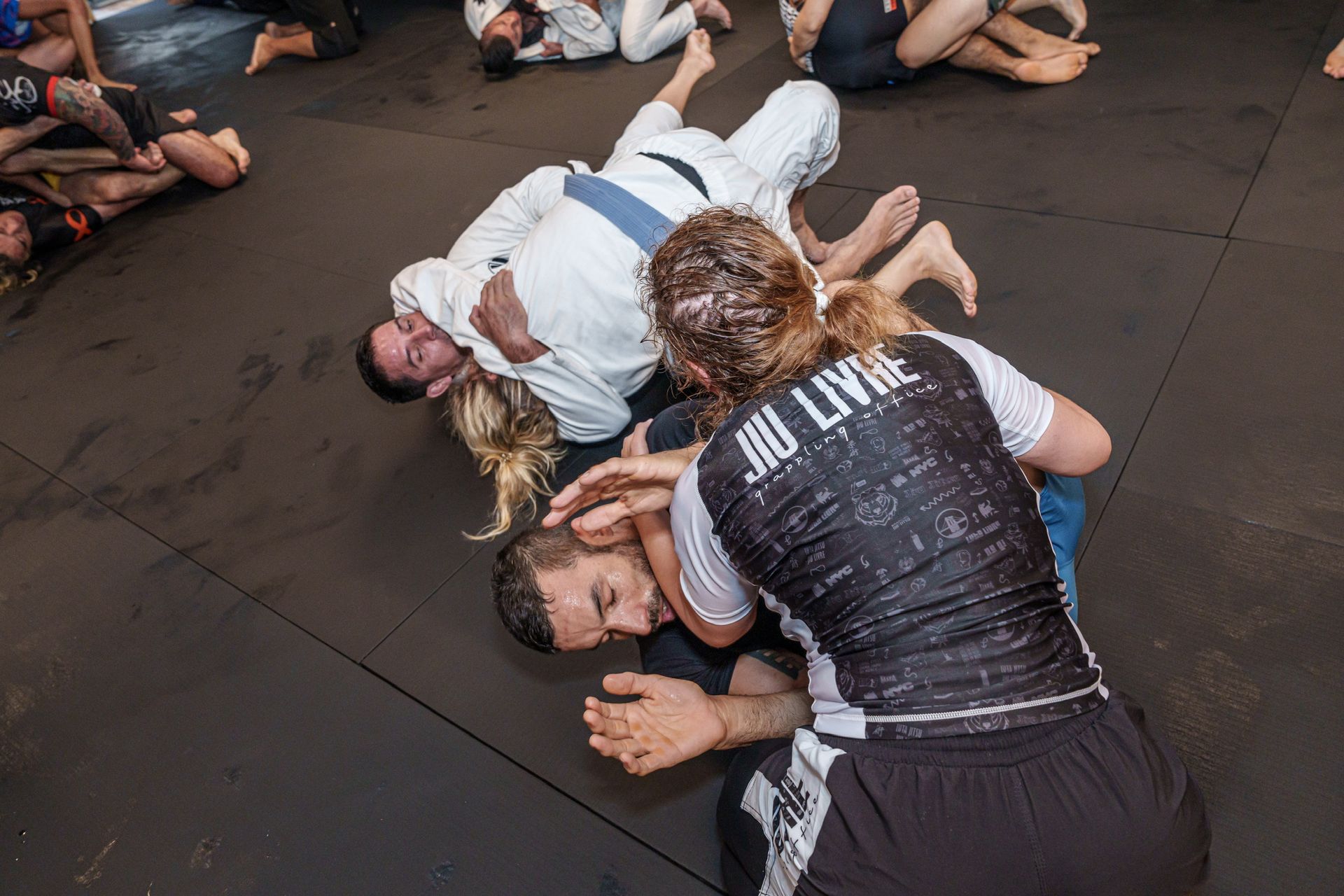
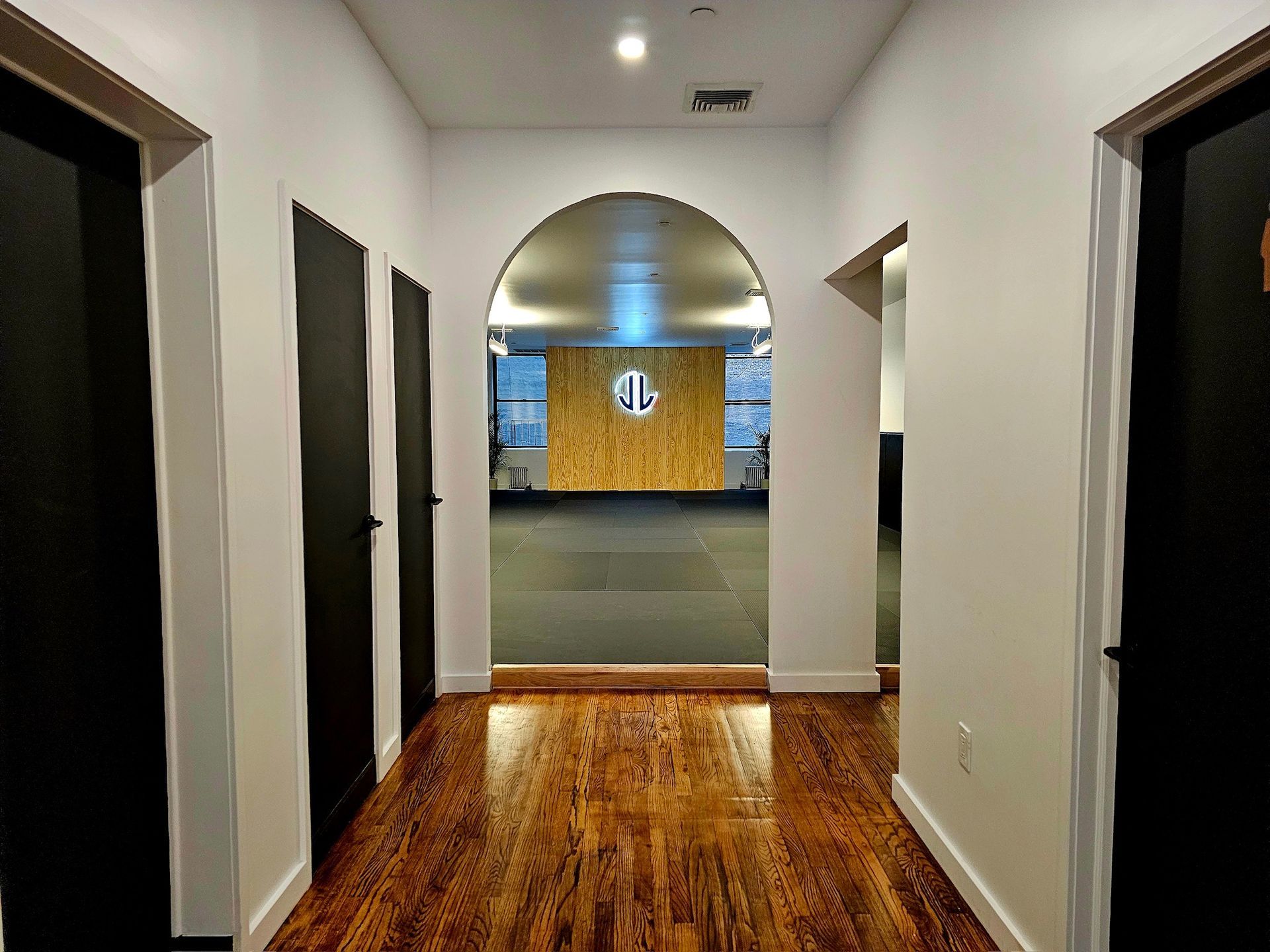
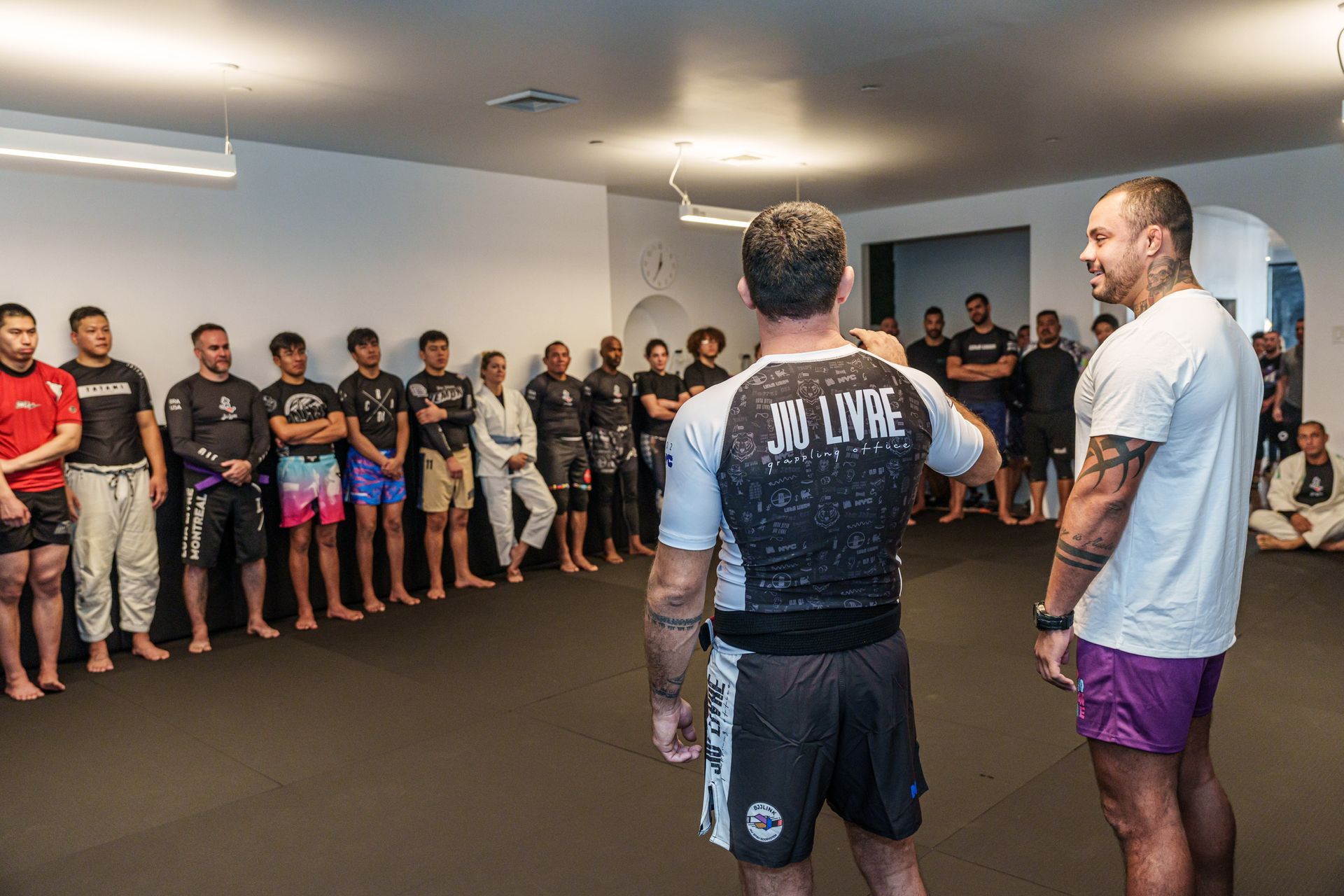
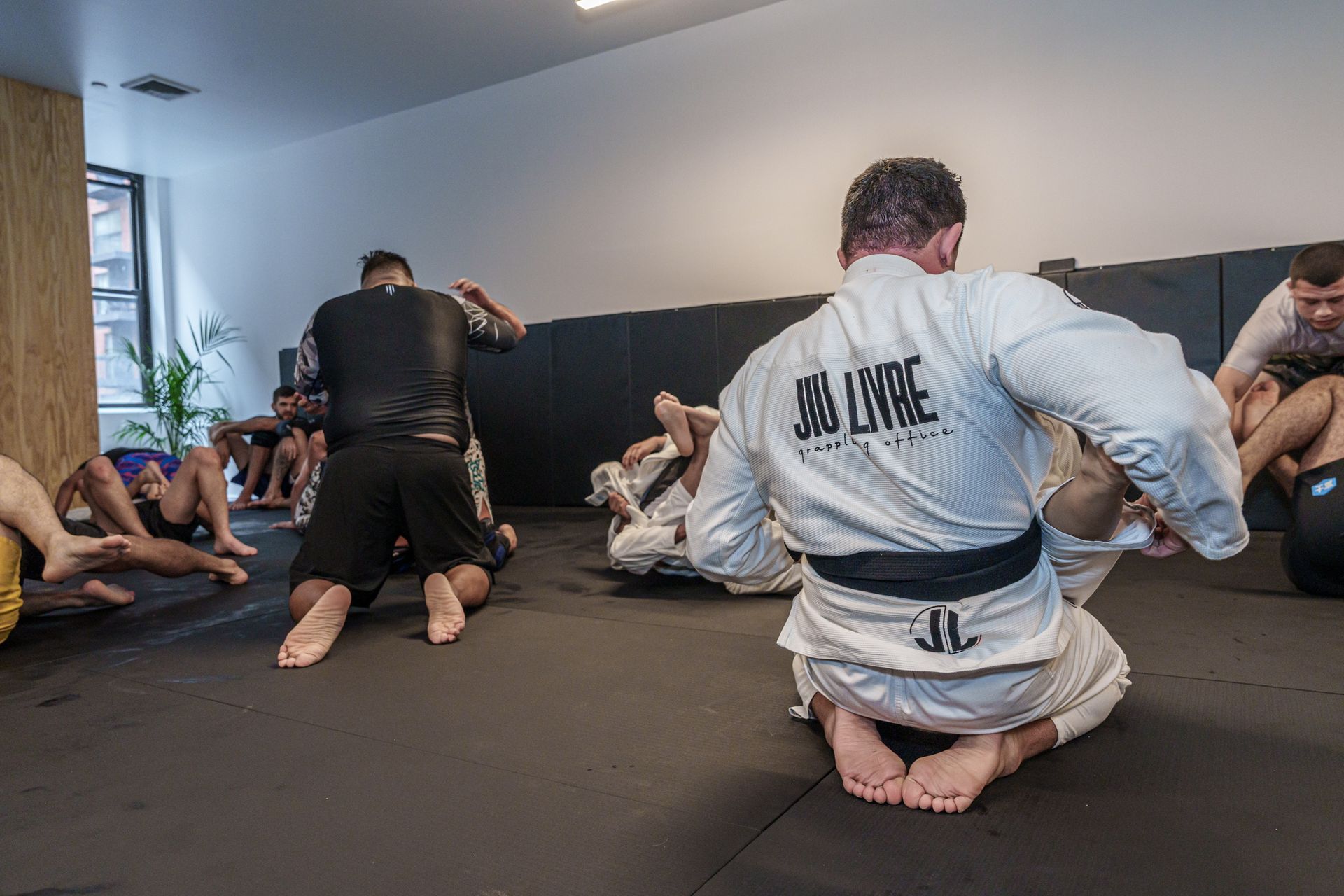
Request Information
Get started today with our EXCLUSIVE offer!
ACCESS OUR SCHEDULE
& EXCLUSIVE WEB SPECIAL
All Rights Reserved | Brava Holdings Inc.
